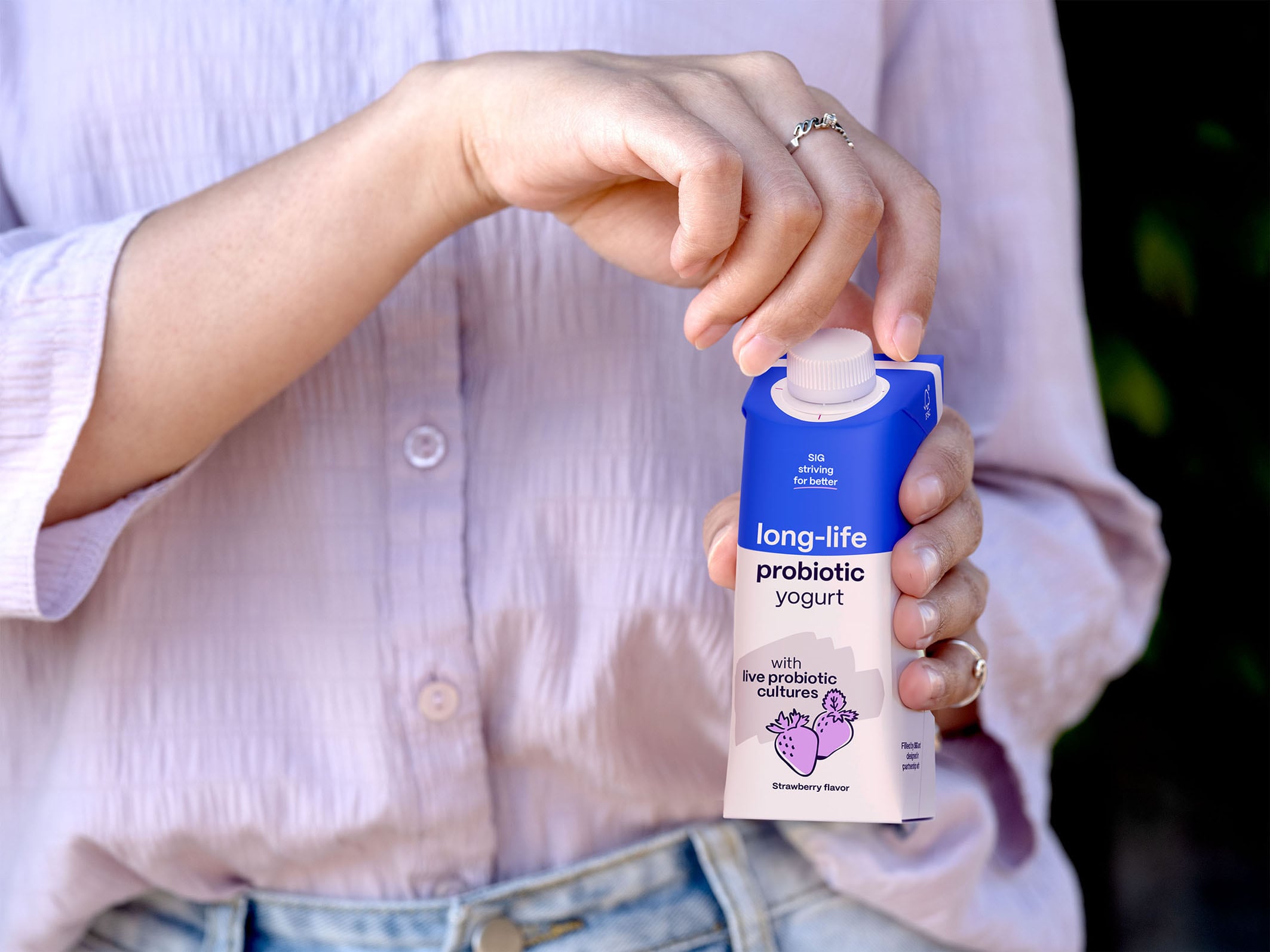The joint innovation has created a new product category of long-life probiotic beverages; an area previously deemed impossible due to the inability of bacteria to survive such heat treatments involved in processing methods.
Furthermore, it is known that probiotics can be notoriously unstable during storage resulting in significant limitations to their use within refrigerated beverages with short shelf-lives.
The developed solution utilises aseptic carton packs and sprouted pouches which use SIG’s gentle filling technology, whilst combining AnaBio’s encapsulation to ensure food and beverage companies can develop long-life probiotics containing live bacterial strains.
Christoph Wegener, Chief Markets Officer at SIG, commented on the launch: “With the creation of a new product category, both SIG and AnaBio are providing beverage and food manufacturers with a pioneering solution to overcome the current limitations of fresh probiotic beverages.
“Our innovation offers lower distribution costs as no refrigeration is required, longer shelf life, increased reach and less food wastage for both retailers and consumers. Aseptic probiotic yogurt drinks demonstrate our continuous drive to innovate to rapidly meet changing consumer needs, while offering high product quality and longer shelf life in sustainable packaging. Our aseptic carton packs are proven to be one of the most sustainable packaging solutions in the market.”
Sinéad Bleiel, Founder of AnaBio Technologies added: “Our innovative patented ‘encapsulation’ technology coats probiotic cells, such as Lactobacillus strains, with a protective layer. This allows the strains to withstand high temperatures during processing. When the probiotic product is consumed, the coating is naturally broken down by digestive enzymes releasing the probiotic to colonize the small intestine and deliver their health benefits.
“Together with the expert team at SIG, we’re not only able to offer consumers probiotic products with unique health benefits, but also a longer product shelf life for greater convenience. It’s a real step-change innovation in the field of probiotic beverage products,” she emphasized.
The innovation has opened an array of further innovation opportunities and new markets, including to countries in need of nutritious products without the need for refrigeration.
Partnering for innovation
AnaBio is based in Cork and specialises in the microencapsulation of sensitive functional ingredients, including probiotics and bioactives, protecting against heat damage and unpleasant tastes. Such compounds range over Lactobacillus and Bifidobacterium species, vitamins, minerals caffeine and melatonin, across a range of applications including beverages, teas, and gummies.
The company previously announced its newly developed microencapsulation technology for long-life dairy products, with AnaBio’s CEO Dr. Aidan Fitzsimons explaining that it is a protein-based coat surrounding the probiotic to protect the microorganisms against moisture.
He stated: “If we look at the beverage market, our estimate is that 1.5-2% of that are probiotic beverages. If we could release the probiotic beverages from the fridge, the untapped market potential is huge.”
He added that the market could reach a valuation of $53.9 billion in three to five years with this developed innovation in mind.

